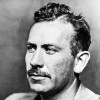“ The idea of humanity in its complete perfection supposes not only the advancement of all the powers and faculties, which constitute our conception of human nature, to a complete attainment of their final aims, but also everything which is requisite for the complete determination of the idea; for of all contradictory predicates, only one can conform with the idea of the perfect man. ”
Immanuel Kant, Critique of Pure Reason (1791). copy citation
| Author | Immanuel Kant |
|---|---|
| Source | Critique of Pure Reason |
| Topic | determination humanity |
| Date | 1791 |
| Language | English |
| Reference | |
| Note | Translated by J. M. D. Meiklejohn |
| Weblink | http://www.gutenberg.org/files/4280/4280-h/4280-h.htm |
Context
“But still further removed than the idea from objective reality is the Ideal, by which term I understand the idea, not in concreto, but in individuo—as an individual thing, determinable or determined by the idea alone. The idea of humanity in its complete perfection supposes not only the advancement of all the powers and faculties, which constitute our conception of human nature, to a complete attainment of their final aims, but also everything which is requisite for the complete determination of the idea; for of all contradictory predicates, only one can conform with the idea of the perfect man. What I have termed an ideal was in Plato’s philosophy an idea of the divine mind—an individual object present to its pure intuition, the most perfect of every kind of possible beings, and the archetype of all phenomenal existences.”
source


